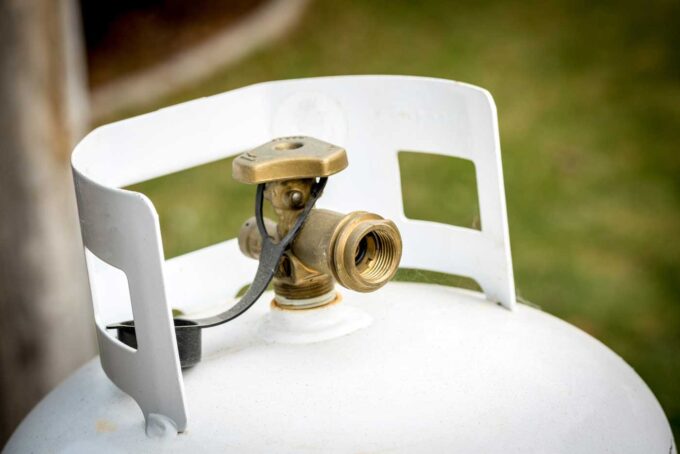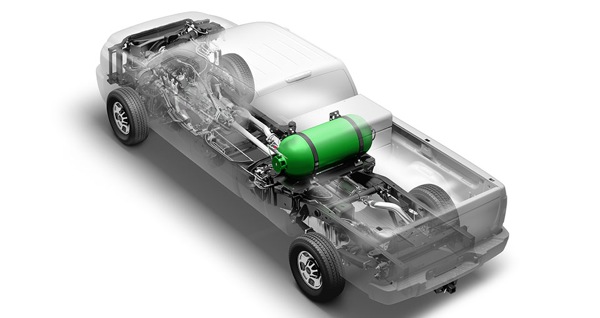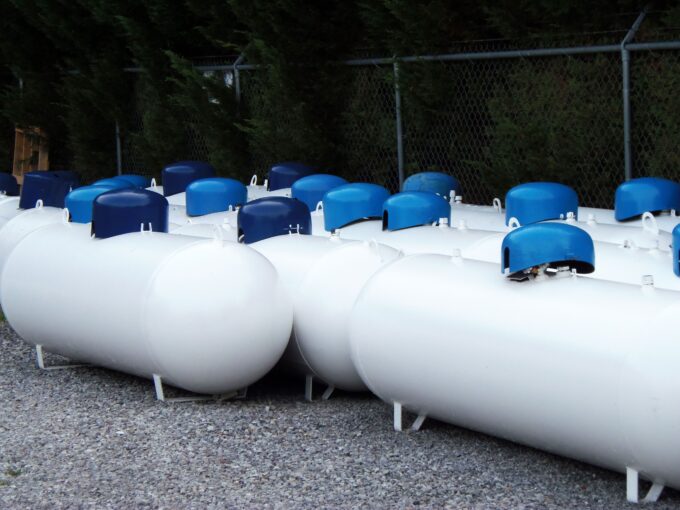Today, sustainability is no longer a luxury, but a necessity. The carbon footprint of a business, which refers to the total amount of greenhouse gases that it produces, has become as significant an indicator of its responsibility and foresight as its financial balance sheet.
Investors, customers, and regulatory bodies are increasingly judging businesses not just on their profits, but also on their environmental stewardship. In fact, businesses that ignore their environmental responsibilities may find themselves at a competitive disadvantage.
In light of this trend, businesses are earnestly seeking ways to reduce their environmental impact. As they seek new ways to achieve this, the choice of energy sources they use becomes increasingly important. Could propane gas be part of the solution? Let’s delve into this possibility.
Propane Gas: Delving Into Its World

The energy landscape is vast and diverse, but not all options are created equal. One energy source making waves in the business world is propane gas. This rising popularity of propane gas isn’t accidental; it’s due to its proven efficiency, reliability, and carbon reduction benefits.
In line with this trend, more businesses are adopting a sustainable approach. The decision to switch to propane gas delivery service may be a worthwhile move. Aside from being an efficient and reliable source, it contributes significantly to reducing a business’s carbon footprint in the long run.
So, what exactly is propane gas? A byproduct of processing both natural gas and crude oil, propane is a versatile fuel widely used for heating, cooking, and even vehicle fuel. Owing to its clean-burning properties, propane has become a popular choice for businesses across various industries.
The Green Advantage: Benefits Of Propane Gas
The advantages of using propane gas extend beyond its immediate utility. When considering the environmental impact, propane emerges as a greener choice. This versatile fuel boasts a multitude of benefits, which can be categorized into environmental, operational, and economic advantages:
Environmental Benefits
Propane burns cleaner than many other fuel sources, producing fewer greenhouse gas emissions and contributing to improved air quality.
Operational Benefits

Known for its energy efficiency, propane often requires less fuel to perform the same tasks as other fuels. It’s reliable and versatile, used in a variety of applications from heating to vehicle fuel. The operational efficiency of propane allows businesses to carry out more tasks while consuming less fuel. This, in turn, leads to lower operational costs and less environmental impact.
Economic Benefits
Propane’s high efficiency can translate into operational cost savings. Additionally, there might be potential tax benefits or incentives for businesses switching to this cleaner energy source.
Propane Gas: A Low-Carbon Energy Alternative
It’s well-known that different energy sources have varying impacts on carbon emissions. When stacked against others, propane gas proves its worth as a cleaner energy alternative.
In the fight against climate change, reducing your business’s carbon footprint is crucial. Transitioning to propane gas can be a key part of this strategy. Here’s how:
Cleaner Burning

Propane is a clean-burning fuel. Its combustion releases fewer harmful pollutants and greenhouse gases compared to many other commonly used fuels.
Lower Carbon Emissions
Due to its chemical structure, propane’s combustion results in fewer carbon emissions, helping businesses reduce their carbon footprint.
Better than Non-Renewable Alternatives
When compared to non-renewable energy sources like oil and coal, or even electricity generated from these sources, propane emerges as a lower carbon alternative.
As demonstrated, the properties of propane gas qualify it as a clean energy source. Switching to propane gas as an energy source will require several steps.
Practical Steps To Using Propane Gas In Business
Shifting to propane gas usage in your business is a process that requires careful planning and execution. Here are some steps you should consider:
Energy Assessment
Evaluate your current energy usage and needs to understand how propane can fit into your energy mix.
Transition Management
Transition periods are typically accompanied by a set of unique challenges, including potential changes to infrastructure and necessary staff training. Plan for these challenges during the switch and devise strategies to overcome them.
Proper planning is the key to ensure the transition to propane gas as an energy source is a successful one.
The Financial Perspective
Now, let’s talk numbers. While the environmental benefits are clear, you might wonder about the financial implications of switching to propane gas.
Here’s a glimpse into the financial perspective of switching to propane:
Initial Investment
Transitioning to propane may require some upfront costs, such as those for equipment modification or installation. However, the long-term benefits often justify these costs.
Operating Costs
Over the long term, propane’s high energy efficiency can lead to lower operating costs and substantial savings.
Government Incentives

Depending on your location, there may be government incentives or grants available for businesses that switch to cleaner energy sources like propane.
In the journey towards a sustainable future, businesses can rely on propane gas as a lower-carbon energy solution. Its low carbon emissions, operational efficiency, and economic benefits combine to form an appealing package for any business aiming to reduce its environmental impact.
Case Studies: Real-World Successes
The benefits of propane are not merely theoretical; numerous businesses have made the switch to propane and have experienced its advantages firsthand. These real-world examples provide valuable insights:
Environmental Impact Reduction
Many companies report a significant decrease in their carbon footprint after switching to propane, illustrating its effectiveness as a cleaner fuel.
Operational Efficiency
Businesses across different sectors, from food service to manufacturing, have capitalized on the energy efficiency of propane, noting improved operational performance. According to the U.S. Department of Energy, propane helps lessen energy bills due to its high efficiency.
Cost Savings
Over time, the financial benefits of propane become apparent. From reduced energy bills to potential tax incentives, companies often find the initial investment in propane infrastructure pays for itself.
Propane Gas: A Future-Ready Energy Solution

As we move towards a more sustainable future, propane gas stands ready to be a major player in the energy sector. This is due to a few key reasons:
Scalability
Propane’s versatility makes it suitable for businesses of all sizes, from small local establishments to large industrial complexes.
Innovation
Technological advancements continue to improve propane’s efficiency and widen its range of applications, making it a future-ready solution.
Sustainability
With its lower carbon emissions, propane is aligned with the global push towards sustainable business practices and green energy solutions.
Final Reflections
Adopting propane gas is an effective and forward-thinking way for companies to lessen their carbon footprints. With its environmental, operational, and financial benefits, propane provides a feasible solution for businesses of all sizes. By opting for propane, businesses not only invest in their future but also contribute to a more sustainable planet.










